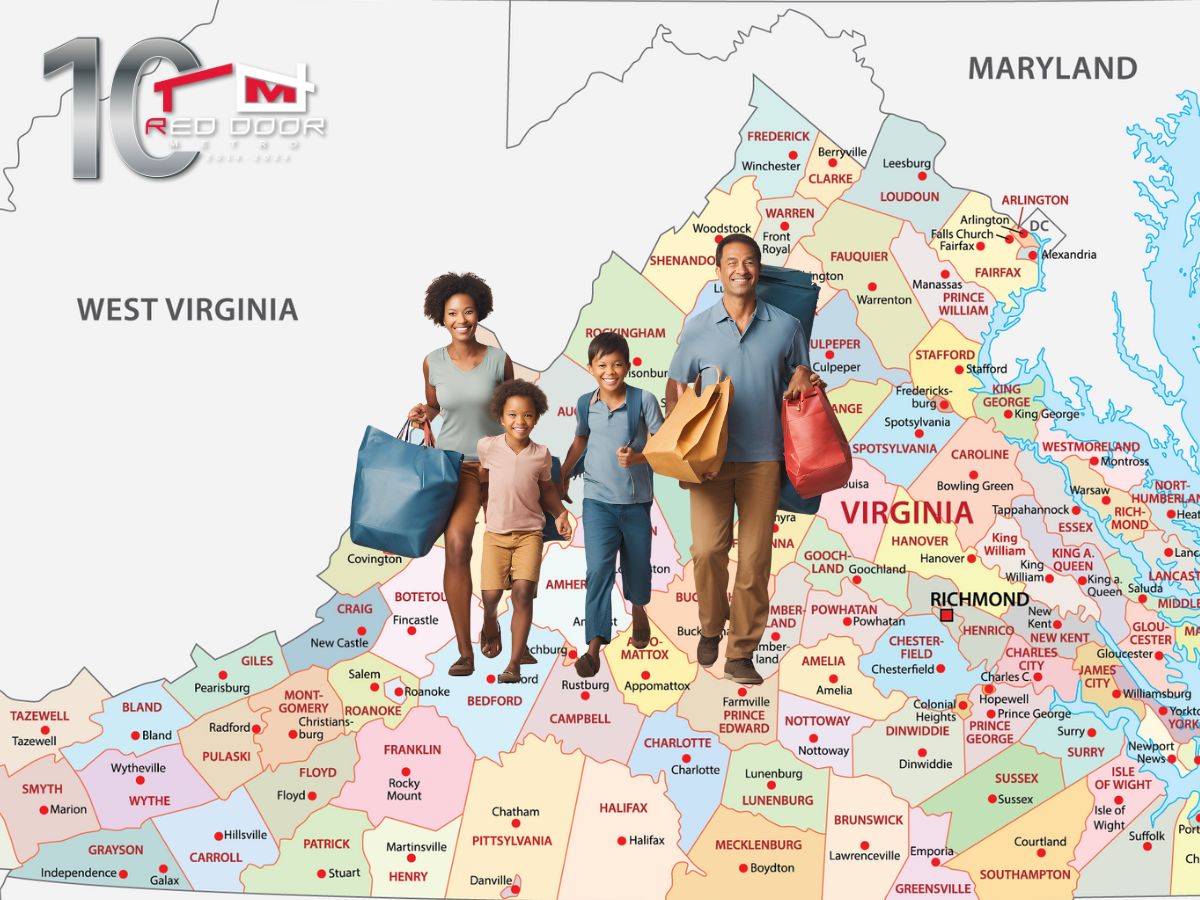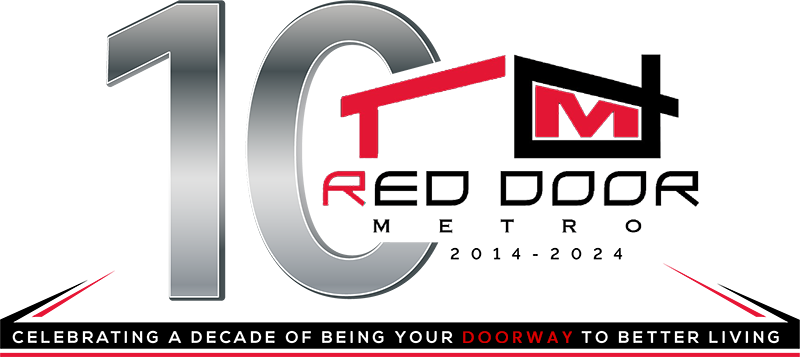
Are you a first-time homebuyer in Virginia, feeling excited and maybe a bit overwhelmed about the home buying process? Purchasing your first home is a significant milestone, but it can also be a complex and challenging endeavor. To help you navigate through this journey successfully, we have compiled the top 10 tips specifically tailored for first-time homebuyers in Virginia. So, let’s get started on your path to finding your dream home!
1. Assess Your Financial Situation
Before embarking on the homebuying process, take a close look at your financial situation. Evaluate your credit score, monthly income, and existing debts. Determine how much you can afford for a down payment and monthly mortgage payments. Getting pre-approved for a mortgage will give you a clear idea of your budget, making it easier to narrow down your options.
2. Research Virginia’s Real Estate Market
Each region in Virginia may have different real estate trends, housing prices, and neighborhood characteristics. Research the local market to gain insights into the areas you’re interested in. Consider factors like school districts, amenities, safety, and proximity to your workplace. Understanding the market will empower you to make well-informed decisions.
3. Choose the Right Realtor
Working with an experienced real estate agent who knows the Virginia market well can be a game-changer. A reliable agent will listen to your needs, show you suitable properties, and negotiate on your behalf. Seek recommendations from friends and family or read reviews to find a realtor who aligns with your preferences and goals.
4. Determine Your Home Preferences
Create a list of features you desire in your future home. Think about the number of bedrooms, bathrooms, yard size, and any specific amenities. Be open to compromise but prioritize the essential elements that will enhance your living experience. Sharing your preferences with your realtor will help them find properties that match your criteria.
5. Home Inspection is Key
Once you find a potential home, never skip the home inspection process. A thorough inspection will reveal any hidden issues or repairs needed. Understanding the property’s condition can save you from unforeseen expenses down the road. If significant issues are found, you can either negotiate repairs with the seller or reconsider your decision.
6. Understand the Buying Process
Familiarize yourself with the home buying process in Virginia. From making an offer to the closing process, understanding each step will make the journey smoother. Your realtor can guide you through the paperwork, legalities, and deadlines involved.
7. Explore First-Time Homebuyer Programs
Virginia offers various first-time homebuyer programs that can provide financial assistance, down payment grants, or low-interest loans. Research and check if you qualify for any of these programs, as they can significantly ease your financial burden.
8. Negotiate Wisely
Negotiation is an essential part of the home buying process. Your realtor can help you make competitive offers and negotiate with the seller. Keep your budget in mind and be prepared to walk away if the negotiations exceed your comfortable range.
9. Plan for Additional Expenses
In addition to the down payment and mortgage, remember to budget for other expenses, such as closing costs, moving costs, and potential renovations. Having a financial cushion will prevent financial stress during the transition to your new home.
10. Trust Your Instincts
Last but not least, trust your instincts when making a decision. If a house feels like the right fit and meets your needs, don’t hesitate to make an offer. Homebuying is not just about finances; it’s also about finding a place to call home.
Conclusion
Congratulations on taking the first steps to becoming a homeowner in Virginia! With these top 10 tips, you are better equipped to navigate the home buying process successfully. Remember to stay patient, be open to compromise, and trust the guidance of your realtor. Your dream home is waiting for you in the beautiful state of Virginia!
FAQs
- Is it necessary to use a realtor when buying a home in Virginia?
While it’s not mandatory, using a realtor can greatly simplify the process and provide valuable expertise.
- What credit score is needed for first-time homebuyers in Virginia?
Generally, a credit score of 620 or higher is recommended for favorable mortgage rates.
- Are there any incentives for first-time homebuyers in Virginia?
Yes, Virginia offers various programs and incentives to assist first-time homebuyers with their purchase.
- How long does the home buying process typically take in Virginia?
The timeline can vary, but on average, it takes around 30 to 45 days to close on a home in Virginia.
- Can I negotiate the price of a home in a seller’s market?
Yes, with the right strategy and guidance from your realtor, negotiation is still possible in a seller’s market.
- Q: What are the first steps to buying a home in Virginia?
A: Start by assessing your financial readiness, getting pre-approved for a mortgage, and researching neighborhoods.
- Q: How do I find the right real estate agent in Virginia?
A: Ask for referrals from friends or family, check online reviews, and interview multiple agents to find the one who understands your needs.
- Q: What should I consider when choosing a neighborhood in Virginia?
A: Look for factors like proximity to work, schools, amenities, crime rates, and property values.
- Q: What types of down payment assistance programs are available for first-time buyers in Virginia?
A: Virginia Housing Development Authority (VHDA) offers various down payment assistance programs based on income eligibility.
- Q: How can I estimate the total cost of owning a home in Virginia?
A: Consider mortgage payments, property taxes, homeowners’ insurance, utilities, and maintenance costs.
- Q: Is it necessary to have a home inspection in Virginia?
A: Yes, a home inspection is crucial to identify any potential issues before finalizing the purchase.
- Q: What are closing costs, and how much should I budget for them in Virginia?
A: Closing costs include lender fees, title insurance, and other expenses. Budget around 2% to 5% of the home’s purchase price.
- Q: Are there any special homebuyer programs for veterans in Virginia?
A: Yes, Virginia offers Veterans Affairs (VA) loans with favorable terms for eligible veterans.
- Q: How do property taxes work in Virginia, and what are the typical rates?
A: Property taxes are based on the assessed value of the property and vary by county but average around 0.80% to 1.50%.
- Q: What is a home appraisal, and who typically pays for it in Virginia?
A: A home appraisal determines the property’s value. The buyer usually pays for the appraisal.
- Q: What’s the importance of getting a pre-approval letter before house hunting in Virginia?
A: A pre-approval letter shows sellers you are a serious buyer and strengthens your offer’s credibility.
- Q: How can I improve my credit score to qualify for better mortgage rates in Virginia?
A: Pay bills on time, reduce credit card debt, and avoid opening new credit accounts.
- Q: Should I consider a fixed-rate or adjustable-rate mortgage in Virginia?
A: It depends on your risk tolerance and how long you plan to stay in the home. Fixed-rate offers stability, while adjustable-rate can be lower initially.
- Q: Can I negotiate the price of a home in Virginia?
A: Yes, negotiating the price is common in real estate transactions.
- Q: Are there any federal or state incentives for first-time homebuyers in Virginia?
A: Depending on the year, there may be federal tax credits or incentives available.
- Q: What’s the typical timeline for closing on a home in Virginia?
A: The closing process usually takes around 30 to 45 days, but it can vary depending on the circumstances.
- Q: How do I avoid potential pitfalls when buying a home in Virginia?
A: Work with experienced professionals, thoroughly review contracts, and research the property’s history.
- Q: Can I qualify for a mortgage if I have student loan debt in Virginia?
A: Yes, having student loan debt doesn’t necessarily disqualify you from getting a mortgage, but it may affect your borrowing capacity.
- Q: Are there any specific homebuyer education programs in Virginia?
A: VHDA offers free homebuyer education classes for first-time buyers.
- Q: What’s the average cost of homes in Virginia?
- A: The average home price in Virginia was around $330,000.


